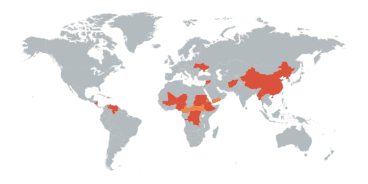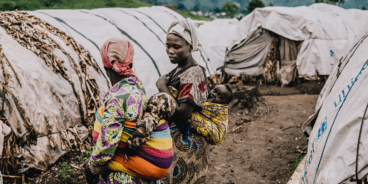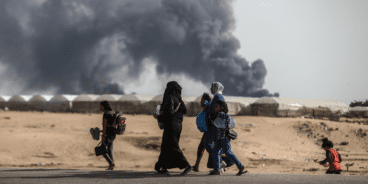UN Security Council Vetoes are Normalizing Chemical Warfare
Yesterday, 16 November, for the tenth time since Syria’s civil war began, Russia vetoed a draft resolution at the UN Security Council aimed at holding perpetrators of mass atrocities accountable. The vetoed resolution would have renewed the mandate of the Organization for the Prohibition of Chemical Weapons Joint Investigative Mechanism (OPCW-JIM), established to identify those responsible for chemical weapons attacks in Syria.
Today, 17 November, Russia also vetoed a technical rollover resolution that would have extended the OPCW-JIM’s mandate for another month and given Council members more time to negotiate the OPCW-JIM’s future. Russian diplomats have tried to present this as a debate about the OPCW-JIM’s technical merits. However, what is at stake is not just the OPCW-JIM, but the gradual normalization of chemical warfare.
The prohibition of chemical weapons is one of the oldest norms of the international community, dating back to 1899. The Geneva Protocol of 1925 reinforced their illegality under international law. This was further strengthened by the 1997 Chemical Weapons Convention of which 192 states, including every current member of the UN Security Council except Egypt, is a signatory.
Although chemical weapons remain inherently immoral, indiscriminate and illegal, there have been scores of attacks in Syria since 2013. The main target and the principal victims of these attacks have been civilians. In response, and in a rare moment of unity, the UN Security Council unanimously adopted Resolution 2235 in August 2015 and established the OPCW-JIM.
Subsequent investigations by the OPCW-JIM have found that the Syrian government has used chemical weapons on four occasions since 2013, while the so-called Islamic State of Iraq and the Levant (ISIL) has used them twice. The latest OPCW-JIM report found that the Syrian government was responsible for the use of sarin during a 4 April 2017 attack on the town of Khan Shaykhun. The report also found the ISIL responsible for an attack on Umm Hawsh on 15 and 16 September 2016, where sulfur mustard gas was used. All of these chemical weapons attacks constitute war crimes.
All UN member states should actively support mechanisms that will help end this culture of impunity, including the Human Rights Council’s Commission of Inquiry and the General Assembly’s Impartial, Independent, International Mechanism to assist in the investigation and prosecution of perpetrators of atrocities in Syria. Moreover, in accordance with General Assembly Resolution A/RES/42/37C (1987), the UN Secretary-General can carry out investigations concerning any possible use of chemical weapons. Given the Security Council’s abject failure, the Secretary-General – with the support of all UN member states – should immediately facilitate the investigation of chemical weapons attacks in Syria, and enable the continuation of the OPCW-JIM’s crucial work.
One hundred and two years after chlorine gas was first used at Ypres during World War One, twenty years since the entry into force of the Chemical Weapons Convention, and twelve years since the international community adopted the principle of the Responsibility to Protect populations from mass atrocity crimes, the UN Security Council has failed the people of Syria. The international community must not do the same.
Read Next
Related Publications


